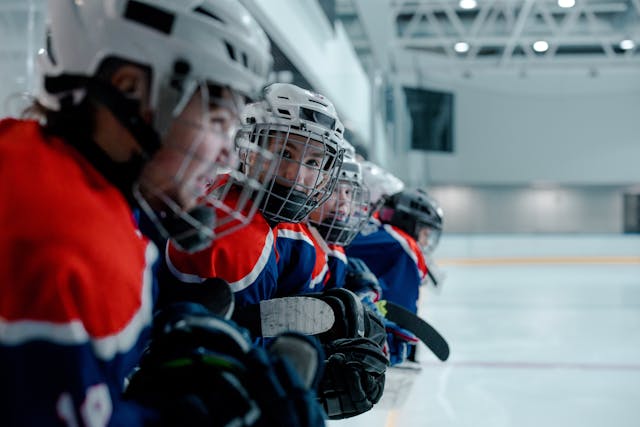
Building Mental Toughness in Young Athletes Without Burning Them Out
|
|
Time to read 3 min
|
|
Time to read 3 min
How to Encourage Resilience, Confidence, and a Growth Mindset—Without Adding Pressure or Stress
In youth sports, coaches and parents often talk about "mental toughness." And for good reason—resilient athletes are more likely to bounce back from failure, handle high-pressure moments, and keep improving over time. But there's a fine line between building mental strength and pushing young athletes too hard.
So how do we help kids develop confidence and grit without causing burnout, anxiety, or resentment?
This guide breaks down what mental toughness really means, how to foster it in age-appropriate ways, and the best practices for building resilient athletes who love the game—and themselves—along the way.
Mental toughness is more than just “shaking it off” after a loss or never showing emotion. For kids and teens, it means:
Resilience: The ability to recover from setbacks
Confidence: Believing in their abilities, even when things are hard
Focus: Staying present, regardless of distractions
Growth Mindset: Embracing effort and learning from mistakes
Mentally tough athletes aren’t perfect—they’re persistent. And that trait can be taught.
Before we dive into how to build toughness, it’s important to recognize the growing issue of burnout in youth sports. Studies show that nearly 70% of kids quit sports by age 13 , often because it’s no longer fun or the pressure becomes too intense.
Common burnout symptoms include:
Loss of passion for the sport
Anxiety before games
Fatigue or frequent injuries
Irritability or withdrawal
Building resilience should make your child more engaged and motivated—not overwhelmed.
One of the biggest ways to instill a growth mindset is by praising effort over outcomes .
✅ Instead of: “You scored so many points—amazing!”
✅ Try: “I’m proud of how hard you worked and stayed focused out there.”
Why it works: Kids begin to value hard work and persistence rather than just winning or performing.
When your athlete says, “I can’t hit that pitch” or “I’m not fast enough,” teach them to add the word “yet.”
➡ “I can’t hit that pitch…yet.”
➡ “I’m not fast enough…yet.”
This small shift helps kids see challenges as temporary and solvable.
Failure is part of sports—and life. Help your child view mistakes as opportunities to learn instead of reasons to feel ashamed.
After a tough game or missed play, ask:
“What did you learn?”
“What would you try differently next time?”
“How can I support you?”
This approach fosters emotional resilience and problem-solving instead of fear of failure.
Consistency builds confidence. Encourage your athlete to build small, manageable habits:
A short warm-up routine before games
Visualization or positive self-talk practices
Journaling about goals or progress
These routines create a sense of control—and help reduce anxiety without adding pressure.
Fun isn’t the enemy of mental toughness. In fact, it’s essential to longevity in sports.
Let your athlete have:
Off days
Cross-training opportunities (play other sports!)
Unstructured play time
When kids enjoy what they’re doing, they’re more likely to stick with it and push through tough moments naturally.
Even with the best intentions, adults can unknowingly increase stress in young athletes. Here’s what to steer clear of:
🚫 Over-scheduling or year-round specialization – This limits recovery and increases mental fatigue.
🚫 Tying worth to performance – Kids should never feel loved “more” when they win or perform well.
🚫 Negative body language or post-game lectures – These can crush confidence.
🚫 Ignoring mental health – Anxiety and depression can affect even young athletes. Always be open to conversations.
✅ As a Parent: Be their biggest supporter, not their second coach. Focus on listening more than correcting.
✅ As a Coach: Create a safe environment for failure, teach mental skills, and check in with your players often.
✅ As a Community: Celebrate all types of progress—not just the MVP.
Mental toughness isn’t just a mindset—it’s also influenced by physical well-being.
Hydration, sleep, and clean nutrition all play major roles in mood, focus, and stamina.
Products like CorVive Hydrate and Protein + Collagen help young athletes recover faster, stay fueled, and feel their best—all without artificial junk.
The goal isn’t to raise the next Olympian—it’s to raise a healthy, happy kid who can face challenges and keep going.
When we teach our athletes to value progress, embrace setbacks, and show up with consistency, we give them tools that last far beyond the field.
Mental toughness doesn’t have to be tough love. It can be built with encouragement, balance, and belief.
Your Cart is Empty

